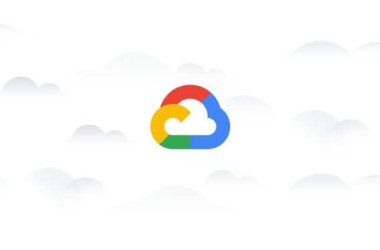 SAP and Google executives yesterday provided a preview of the companies’ plans to tie their respective cloud-based business applications together, but a number of details have yet to be finalised.
SAP and Google executives yesterday provided a preview of the companies’ plans to tie their respective cloud-based business applications together, but a number of details have yet to be finalised.
“The current plan is for SAP to deliver an integration between its Business ByDesign on-demand ERP (enterprise resource planning) suite and Google Apps early in the third quarter of next year, as part of a ByDesign feature pack update,” said Bernd-Uwe Pagel, senior VP of outsourcing and on demand ecosystem for SAP.
“Business ByDesign is sold by subscription, as is Google Apps, and customers will need to license both products to take advantage of the integration. It’s not completely clear whether ByDesign customers will be charged any extra fees to turn it on, however. I don’t foresee this will cost additional money,” Pagel said.
SAP has long worked with Microsoft to integrate Office and SAP’s ERP applications, and that relationship won’t change, according to Pagel. “We have requests from customers and the Google Apps are great, so we think we need to have a level playing field here,” he said.
A number of customers are already working with SAP and Google on the integration, Pagel added. “Google’s APIs (application programming interfaces) for the Apps family are up to the task, but SAP intends to weave the software into ByDesign’s process flows, which will take some time,” he said. “For example, one integration point might allow a ByDesign user making an appointment within the suite’s CRM module to then push the entry into Google Calendar,” Pagel said.
SAP is also “endorsing a couple of Google platforms as key standards,” namely the Android mobile OS and Google App Engine, according to Pagel. “Developers will be able to build applications on the App Engine and tie them into ByDesign, providing a broader ecosystem than that granted by SAP’s own SDK (software development kit) for ByDesign,” he added.
The Apps integration will be available in France, the U.S. and UK during a pilot phase but will then be extended to other countries, according to Pagel. “SAP also intends to offer the integration for its growing family of line-of-business on-demand applications,” he said.
There’s also an intent by both SAP and Google to encourage their resellers to offer each other’s products, but the full details and scope of this plan weren’t available yesterday.
“Several Google Apps resellers do sell ERP systems now,” said Rahul Sood, director of product management at Google. “From the Google perspective, we’re hoping SAP resellers take this opportunity to add Google Apps to their portfolio.”
SAP is hoping to work with 10 to 15 Google resellers in the first half of next year, according to Pagel.
While the planned partnership could bring Google and SAP closer together, it’s not clear if the relationship will ever be something approaching exclusive. For one, Google already has a high-profile partnership with Salesforce.com, which has been becoming a closer competitor to SAP of late.
Salesforce.com recently announced the acquisition of startup Rypple as the first step in building a human-resource software division. The move came shortly after SAP’s high-profile, $3.4 billion acquisition of HR vendor SuccessFactors.
Still, the move makes sense for both SAP and Google given the broad opportunities for cross-selling it provides. SAP claims some 88,000 small to medium-sized business customers, while Google says 4 million businesses use Google Apps.





